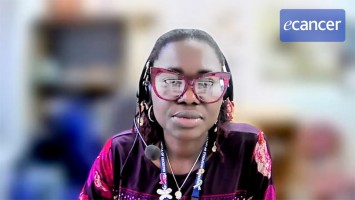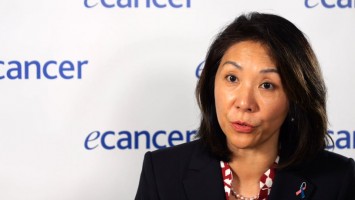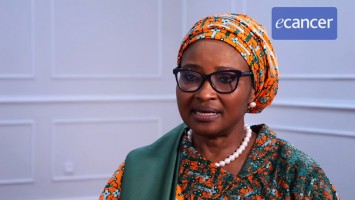I think it’s great this year that ASCO has given this platform to many speakers to speak about oncology in low and middle income countries which has really raised the profile of this area. There have been several sessions: there has been a session on sarcoma and access to sarcoma medicines in low and middle income countries. There’s a session, I believe today or tomorrow, on myeloma and there was also a great session on breast cancer, global breast cancer management. That covered quite a wealth of things – there was a session on Latin America and breast cancer there. I think my take-home messages from that were the huge rise in levels of obesity in some of the Latin American countries, particularly Panama where they had over 100% increase in levels of obesity in recent years which is huge. They also looked at incidence of breast cancer and risk factors and one of the really interesting things, I thought, was where there was lack of patient education level being a statistically significant risk factor, in fact the only statistically significant risk factor, as opposed to the more conventional ones like parity and obesity that we think of. That session just finished off with what needs to improve in that part of the world. But it was great to see more data being collected and presented.
There was another great session led by Fatima Cardoso who ran the session on access to cancer medicines with a real emphasis on the ASCO and ESMO value guidelines. Because it’s not just access to high cost drugs that is a problem, it can also be access to lower cost drugs and having these value systems whereby we prioritise access to drugs that really, really give value and not just the latest drug which may give minimal value to society is incredibly important. So, yes, there have been some really, really interesting sessions. That particular session yesterday wrapped up with a session on research in low and middle income countries and just detailed that really in low and middle income countries the main research that patients have access to is phase III trials. I certainly think that the way forward is going to be building research infrastructure and collaborative working. We’ve seen it work with HIV research, particularly in sub-Saharan Africa and other such countries and there’s no such reason why this can’t be developed for cancer as well. I think that implementation science is going to be incredibly important because what works for us in high income countries may not work in these settings and it’s not just a matter of translating what we do in these settings.
You’d hope if there’s any place to set out on collaborations and international work along with this kind of manner then ASCO would be the place for it.
Absolutely, yes. It’s so well attended by people from such a variety of countries. This has been a real pleasure to interact with many people.
I imagine it has inspired quite a lot of quite energised discussion as well.
Absolutely, yes.
And when it comes to carrying on that conversation outside of the conference for people to not just talk about it but then live the changing practice, is there any indication that that is happening? Are people getting involved and if not where can they start to contribute?
I think so. I’ve just come from a session that I was part of looking at the East African education programme that the Royal College of Physicians and British Council and East African Development Bank are running. It was the first of its kind educational session that we were really privileged to have that platform and it was great to see people coming up at the end and wanting to get involved and being interested in it. It’s been really great to mix with people and form links to how this kind of work can be developed in the future.








